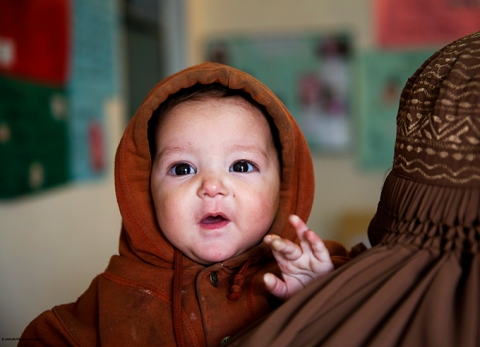Poor sanitation is stunting children in Pakistan: WB report

ISLAMABAD, Nov 13 (DNA): The alarming state of water supply and sanitation in Pakistan is creating major health hazards for the entire population and young children are particularly at risk, says a new World Bank report.
“When Water Becomes a Hazard: The State of Water Supply, Sanitation and Poverty in Pakistan and its Impact on Child Stunting”, states that Pakistan has made significant progress on reducing poverty, improving dietary diversity and reducing open defecation.
Despite this, critical markers of child health – rates of diarrhea and stunting – still do not show any real improvement.
The report finds that bacterial contamination of surface and ground water is on the rise because of the lack of treatment of human waste. Rural areas where the majority of poor households reside are the worst affected. Contamination levels are much higher in poorer and more rural districts and there is virtually no treatment of water at the household level.
Fecal waste is also finding its way into surface soil and into the water used for crop irrigation.
This is turn contaminates food supplies which find their way into urban centers posing health hazards for millions of city dwellers. Young children are most at risk due to diarrhea as well as growth faltering due to environmental enteropathy, which limits the absorption of nutrients even during periods when the child shows no signs of diarrhea—eventually leading to stunting.
“This report provides timely evidence and clear policy advice on the importance of safe water and sanitation for addressing malnutrition”, says Illango Patchamuthu, World Bank Country Director for Pakistan.
“Stunting is a serious problem in Pakistan. It severely impacts the learning of children which puts them at a permanent disadvantage in the age of the knowledge economy. This requires urgent attention to the treatment of water and investment in the management of fecal waste”.
Given the gravity of the problem and the levels of investment required, the report recommends a targeted and multi-tiered approach. Investments in fecal waste management systems as well as in the provision of safe drinking water need to begin on an urgent basis but these will take time to reach scale. In the meantime, there are a number of relatively low-cost interventions that can be started immediately and at scale, to protect young children.=DNA
Related News

UNODC, Pakistan join hands to combat smuggling of migrants
ISLAMABAD, APR 26 /DNA/ – The Federal Investigation Agency (FIA) and the Ministry of ForeignRead More

Complete independence impossible without economic stability: COAS
RAWALPINDI, APR 26: Chief of Army Staff (COAS) General Asim Munir on Friday said thatRead More


Comments are Closed